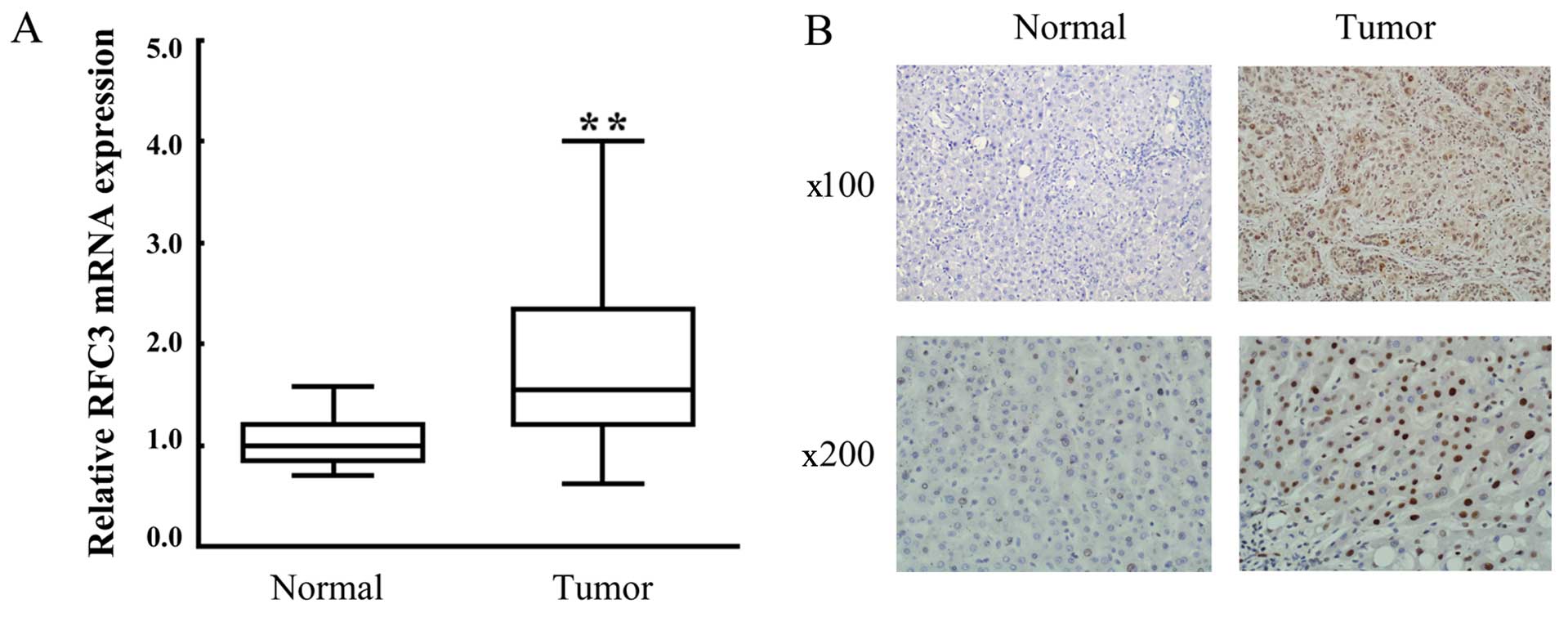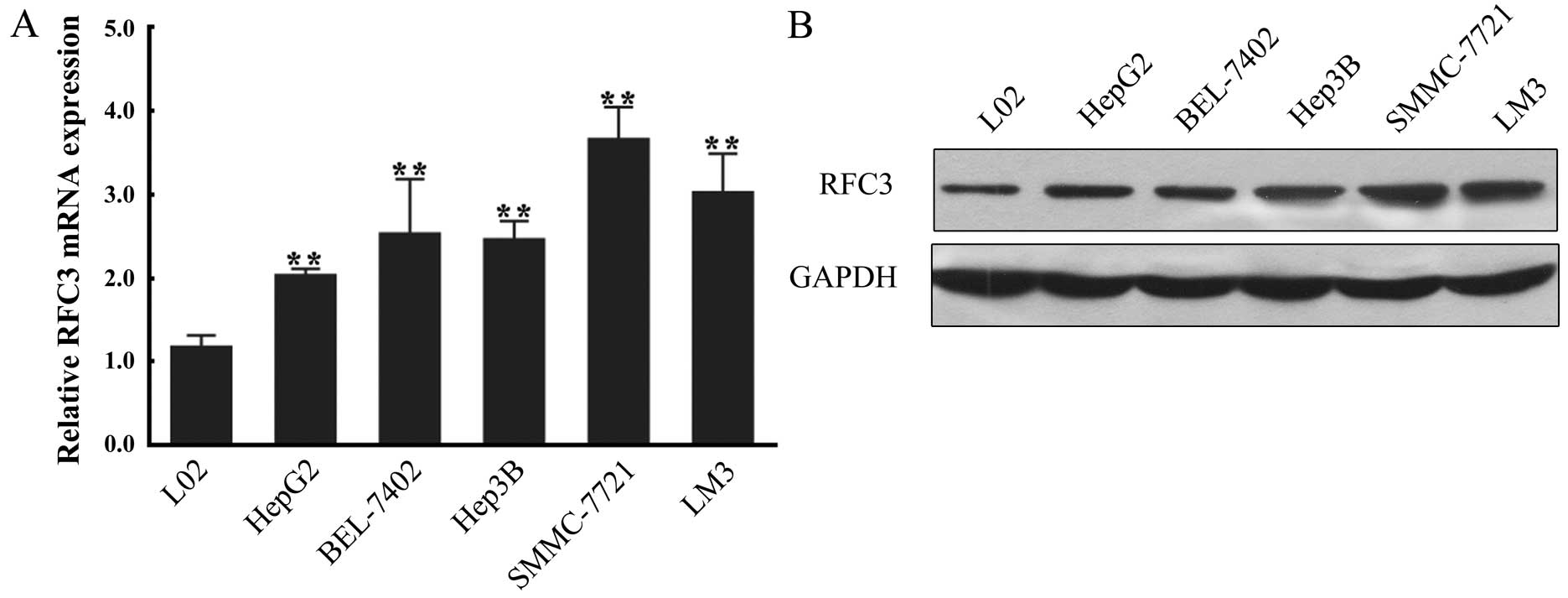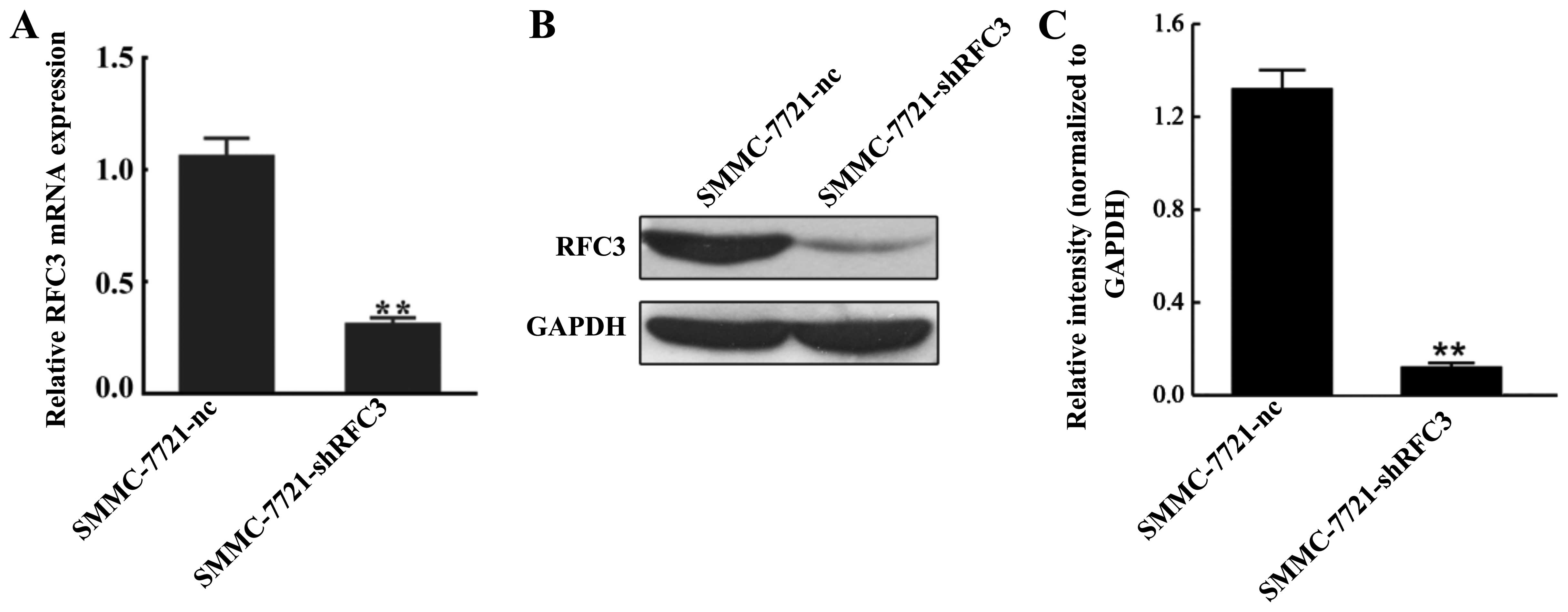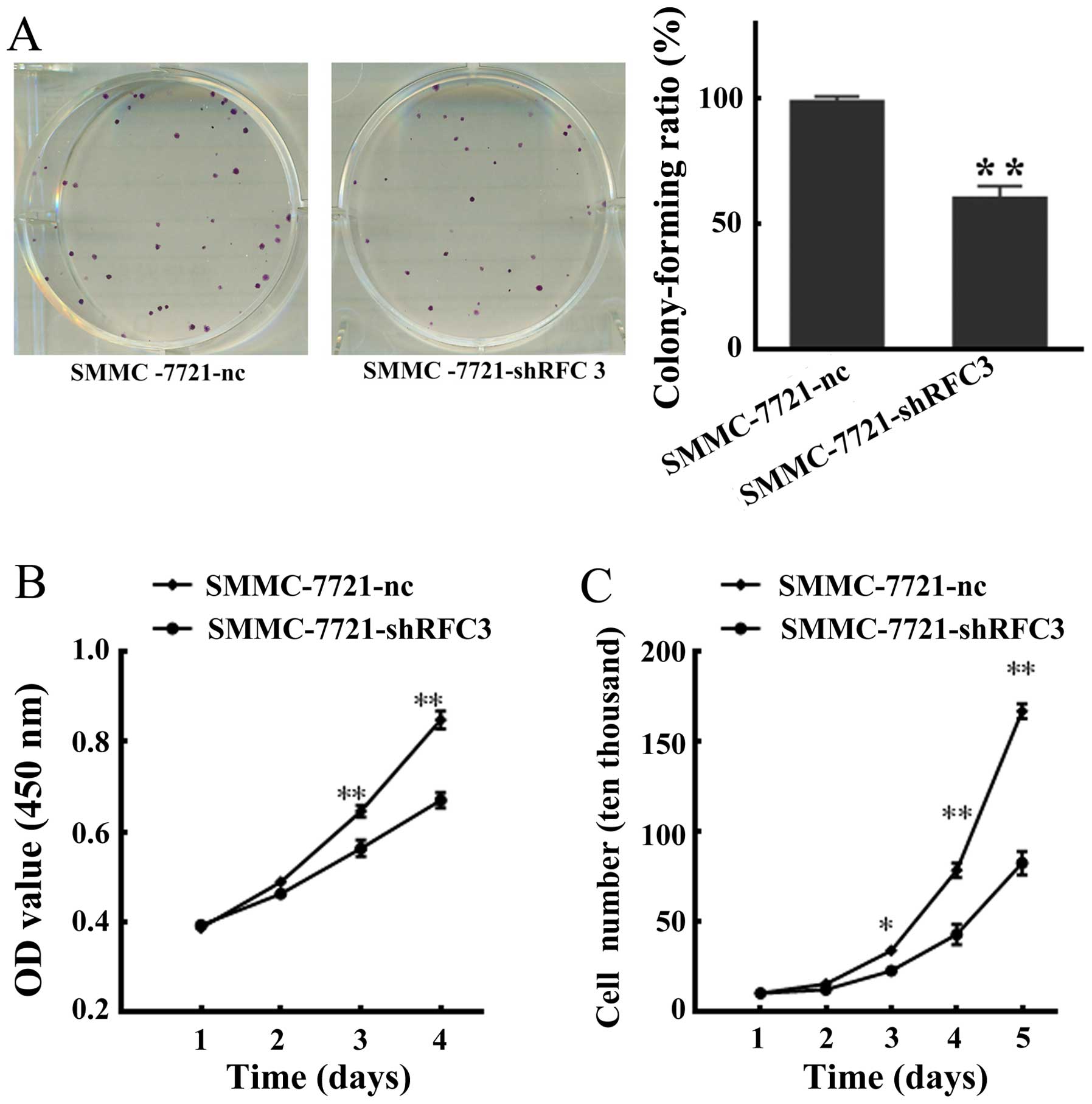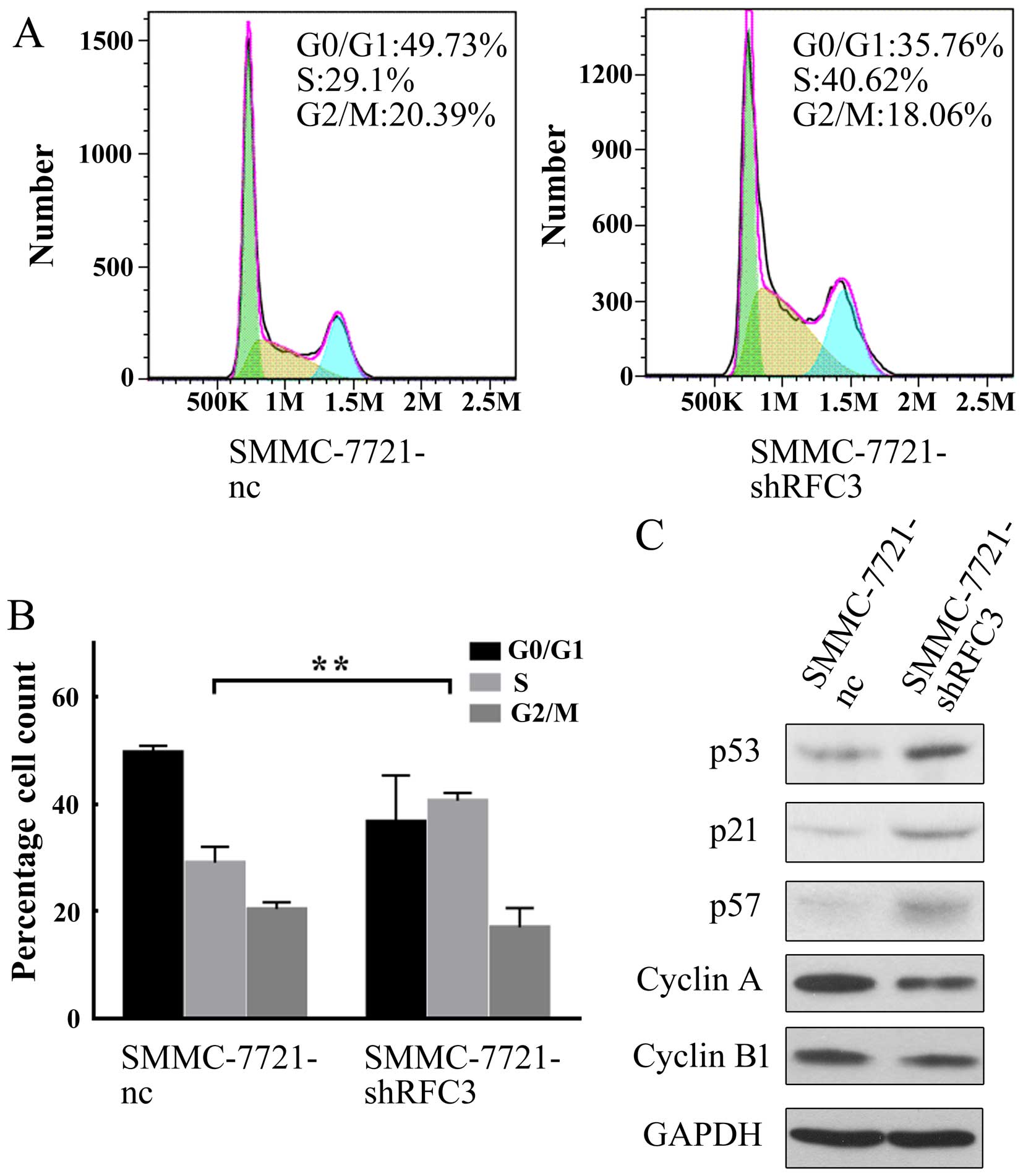|
1
|
Slotta JE, Kollmar O, Ellenrieder V,
Ghadimi BM and Homayounfar K: Hepatocellular carcinoma: Surgeon's
view on latest findings and future perspectives. World J Hepatol.
7:1168–1183. 2015. View Article : Google Scholar : PubMed/NCBI
|
|
2
|
Huang CY, Lin CS, Tai WT, Hsieh CY, Shiau
CW, Cheng AL and Chen KF: Sorafenib enhances radiation-induced
apoptosis in hepatocellular carcinoma by inhibiting STAT3. Int J
Radiat Oncol Biol Phys. 86:456–462. 2013. View Article : Google Scholar : PubMed/NCBI
|
|
3
|
McGlynn KA, Petrick JL and London WT:
Global epidemiology of hepatocellular carcinoma: an emphasis on
demographic and regional variability. Clin Liver Dis. 19:223–238.
2015. View Article : Google Scholar : PubMed/NCBI
|
|
4
|
Yang HI, Lee MH, Liu J and Chen CJ: Risk
calculators for hepatocellular carcinoma in patients affected with
chronic hepatitis B in Asia. World J Gastroenterol. 20:6244–6251.
2014. View Article : Google Scholar : PubMed/NCBI
|
|
5
|
Bahri O, Ezzikouri S, Alaya-Bouafif NB,
Iguer F, Feydi AE, Mestiri H, Benazzouz M, Khalfallah T, Afifi R,
Elkihal L, et al: First multicenter study for risk factors for
hepatocellular carcinoma development in North Africa. World J
Hepatol. 3:24–30. 2011.PubMed/NCBI
|
|
6
|
Culligan KM and Hays JB: DNA mismatch
repair in plants. An Arabidopsis thaliana gene that predicts a
protein belonging to the MSH2 subfamily of eukaryotic MutS
homologs. Plant Physiol. 115:833–839. 1997. View Article : Google Scholar : PubMed/NCBI
|
|
7
|
Pascucci B, Stucki M, Jónsson ZO,
Dogliotti E and Hübscher U: Long patch base excision repair with
purified human proteins. DNA ligase I as patch size mediator for
DNA polymerases delta and epsilon. J Biol Chem. 274:33696–33702.
1999. View Article : Google Scholar : PubMed/NCBI
|
|
8
|
Shimada M, Okuzaki D, Tanaka S, Tougan T,
Tamai KK, Shimoda C and Nojima H: Replication factor C3 of
Schizosaccharomyces pombe, a small subunit of replication factor C
complex, plays a role in both replication and damage checkpoints.
Mol Biol Cell. 10:3991–4003. 1999. View Article : Google Scholar : PubMed/NCBI
|
|
9
|
Xia ST, Xiao LT, Bi DL and Zhu ZH:
Arabidopsis replication factor C subunit 1 plays an important role
in embryogenesis. Zhi Wu Sheng Li Yu Fen Zi Sheng Wu Xue Xue Bao.
33:179–187. 2007.PubMed/NCBI
|
|
10
|
Sancar A, Lindsey-Boltz LA, Unsal-Kaçmaz K
and Linn S: Molecular mechanisms of mammalian DNA repair and the
DNA damage checkpoints. Annu Rev Biochem. 73:39–85. 2004.
View Article : Google Scholar : PubMed/NCBI
|
|
11
|
Mossi R and Hübscher U: Clamping down on
clamps and clamp loaders - the eukaryotic replication factor C. Eur
J Biochem. 254:209–216. 1998.PubMed/NCBI
|
|
12
|
Shen H, Cai M, Zhao S, Wang H, Li M, Yao S
and Jiang N: Overexpression of RFC3 is correlated with ovarian
tumor development and poor prognosis. Tumour Biol. 35:10259–10266.
2014. View Article : Google Scholar : PubMed/NCBI
|
|
13
|
Xiong S, Wang Q, Zheng L, Gao F and Li J:
Identification of candidate molecular markers of nasopharyngeal
carcinoma by tissue microarray and in situ hybridization. Med
Oncol. 28(Suppl 1): S341–S348. 2011. View Article : Google Scholar
|
|
14
|
Xia S, Xiao L, Gannon P and Li X: RFC3
regulates cell proliferation and pathogen resistance in
Arabidopsis. Plant Signal Behav. 5:168–170. 2010. View Article : Google Scholar :
|
|
15
|
Maeng S, Kim GJ, Choi EJ, Yang HO, Lee DS
and Sohn YC: 9-Cis-retinoic acid induces growth inhibition in
retinoid-sensitive breast cancer and sea urchin embryonic cells via
retinoid X receptor α and replication factor C3. Mol Endocrinol.
26:1821–1835. 2012. View Article : Google Scholar : PubMed/NCBI
|
|
16
|
Hu K, Wang J, Yao Z, Liu B, Lin Y, Liu L
and Xu L: Expression of cytoskeleton regulatory protein Mena in
human hepatocellular carcinoma and its prognostic significance. Med
Oncol. 31:9392014. View Article : Google Scholar : PubMed/NCBI
|
|
17
|
Freshney RI, Sherry A, Hassanzadah M,
Freshney M, Crilly P and Morgan D: Control of cell proliferation in
human glioma by glucocorticoids. Br J Cancer. 41:857–866. 1980.
View Article : Google Scholar : PubMed/NCBI
|
|
18
|
Wang J, Gong L, Zhu SJ, Zhu Q, Yao L, Han
XJ, Zhang JR, Li YH and Zhang W: The human homolog of Drosophila
headcase acts as a tumor suppressor through its blocking effect on
the cell cycle in hepatocellular carcinoma. PLoS One.
10:e1375792015.
|
|
19
|
Gartel AL and Radhakrishnan SK: Lost in
transcription: p21 repression, mechanisms, and consequences. Cancer
Res. 65:3980–3985. 2005. View Article : Google Scholar : PubMed/NCBI
|
|
20
|
el-Deiry WS, Tokino T, Velculescu VE, Levy
DB, Parsons R, Trent JM, Lin D, Mercer WE, Kinzler KW and
Vogelstein B: WAF1, a potential mediator of p53 tumor suppression.
Cell. 75:817–825. 1993. View Article : Google Scholar : PubMed/NCBI
|
|
21
|
Lee MH, Reynisdóttir I and Massagué J:
Cloning of p57KIP2, a cyclin-dependent kinase inhibitor with unique
domain structure and tissue distribution. Genes Dev. 9:639–649.
1995. View Article : Google Scholar : PubMed/NCBI
|
|
22
|
Guadagno TM and Newport JW: Cdk2 kinase is
required for entry into mitosis as a positive regulator of
Cdc2-cyclin B kinase activity. Cell. 84:73–82. 1996. View Article : Google Scholar : PubMed/NCBI
|
|
23
|
De Souza CP, Ellem KA and Gabrielli BG:
Centrosomal and cytoplasmic Cdc2/cyclin B1 activation precedes
nuclear mitotic events. Exp Cell Res. 257:11–21. 2000. View Article : Google Scholar : PubMed/NCBI
|
|
24
|
Johnson A, Yao NY, Bowman GD, Kuriyan J
and O'Donnell M: The replication factor C clamp loader requires
arginine finger sensors to drive DNA binding and proliferating cell
nuclear antigen loading. J Biol Chem. 281:35531–35543. 2006.
View Article : Google Scholar : PubMed/NCBI
|
|
25
|
Li X and Burgers PM: Molecular cloning and
expression of the Saccharomyces cerevisiae RFC3 gene, an essential
component of replication factor C. Proc Natl Acad Sci USA.
91:868–872. 1994. View Article : Google Scholar : PubMed/NCBI
|
|
26
|
Arai M, Kondoh N, Imazeki N, Hada A,
Hatsuse K, Matsubara O and Yamamoto M: The knockdown of endogenous
replication factor C4 decreases the growth and enhances the
chemosensitivity of hepatocellular carcinoma cells. Liver Int.
29:55–62. 2009. View Article : Google Scholar
|
|
27
|
Martinez I, Wang J, Hobson KF, Ferris RL
and Khan SA: Identification of differentially expressed genes in
HPV-positive and HPV-negative oropharyngeal squamous cell
carcinomas. Eur J Cancer. 43:415–432. 2007. View Article : Google Scholar :
|
|
28
|
Koch HB, Zhang R, Verdoodt B, Bailey A,
Zhang CD, Yates JR III, Menssen A and Hermeking H: Large-scale
identification of c-MYC-associated proteins using a combined
TAP/MudPIT approach. Cell Cycle. 6:205–217. 2007. View Article : Google Scholar : PubMed/NCBI
|
|
29
|
Green CM, Erdjument-Bromage H, Tempst P
and Lowndes NF: A novel Rad24 checkpoint protein complex closely
related to replication factor C. Curr Biol. 10:39–42. 2000.
View Article : Google Scholar : PubMed/NCBI
|















